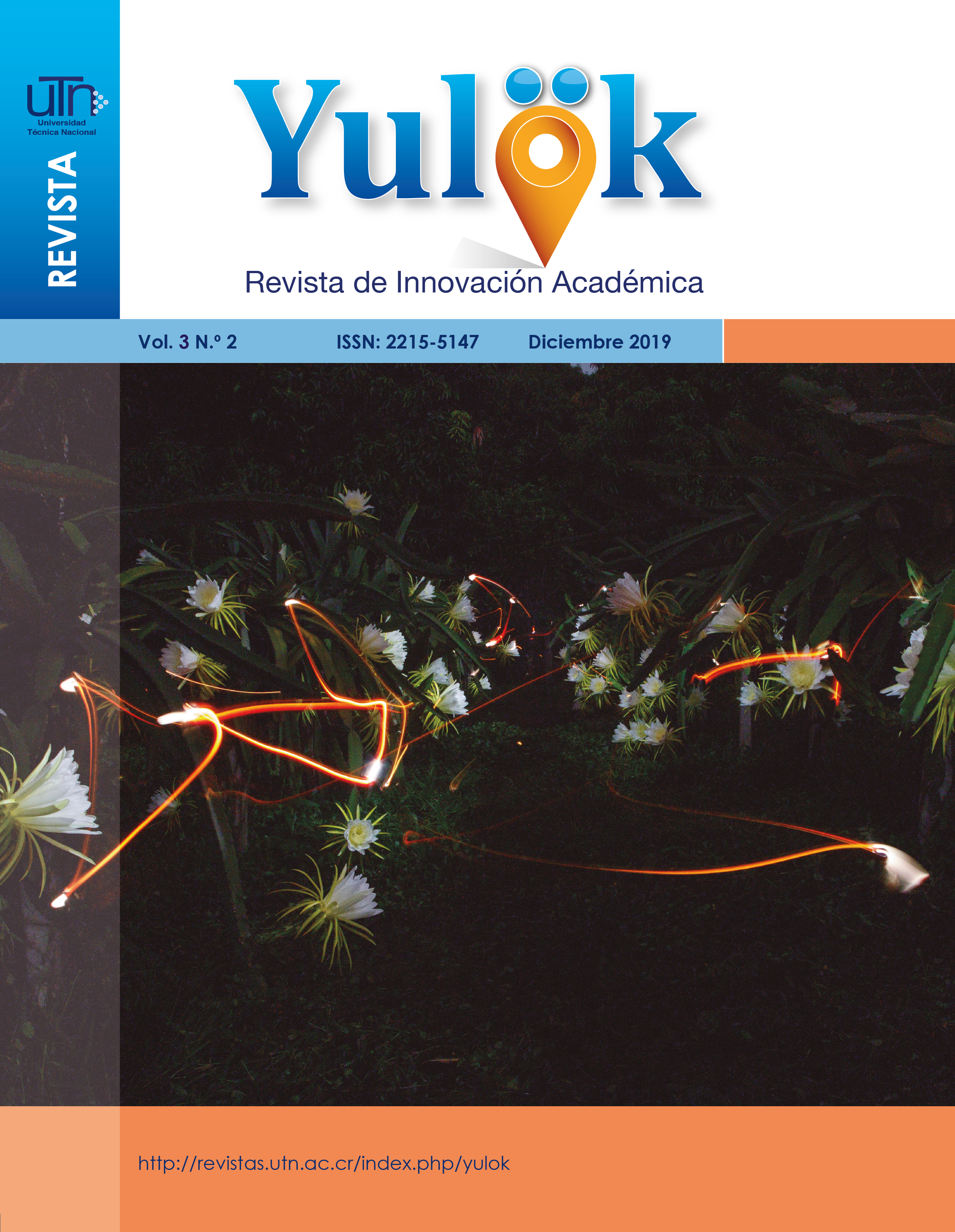Innovative strategies in the library: study of users of the physical-virtual library
Main Article Content
Abstract
The paper was carried out in the San Carlos Campus, to analyze the perspective that the university community has, regarding the needs of information, access and use of the physical-virtual library; this with the aim of being able to optimize the services and products of the library. The study is part of the mixed approach, quantitative and qualitative data are extracted, and it is descriptive. Some results of the study are the university community makes regular use of libraries, university libraries and public libraries are the most consulted, the most used tool to search for information is Internet, the consultation to the physical-virtual library is little, the main need for information is the search for information, followed by training in the American Psychological Association (APA) normalization, as well as training in accessing and using the University’s virtual library. On the other hand, it can be concluded that it is important for campus to support the processes of continuous improvement of the library in order to offer a quality education, academics are a vital target of libraries, because they stimulate and encourage access and use from the physical-virtual library, on the part of the students; It is transcendental that the university authorities carry out an administrative directive, where the training of academics is required, with respect to the access and use of the physical-virtual library, as well as their different information resources and tools for research.
Article Details
Section

This work is licensed under a Creative Commons Attribution-NonCommercial-ShareAlike 4.0 International License.
Todos los artículos publicados están protegidos con la licencia Creative Commons Atribución-NoComercial-CompartirIgual 4.0 Internacional
![]()
How to Cite
References
Aguado, A. (2010). Introducción. En Evaluación de bibliotecas universitarias (pp. 15-18). Argentina: Alfagrama.
Asamblea Legislativa de la República de Costa Rica. (14 de mayo de 2008). Ley orgánica de la Universidad Técnica Nacional. [Ley 8638 de 2008]. Recuperado de http://utn.ac.cr/sites/default/files/attachments/Ley%20Org%C3%A1nica%20de%20la%20Universidad%20T%C3%A9cnica%20Nacional.pdf
Guzmán-Valenzuela, C. (2017). Tendencias globales en educación superior y su impacto en América Latina: desafíos pendientes. Lenguas Modernas, (50), 15-32. Recuperado de http://search.ebscohost.com/login.aspx?direct=true&db=a9h&AN=129597497&lang=es&site=ehost-live [base de datos Ebsco Host]
Figueredo, A., Figueredo, M. y Aponte, C. (2013). La biblioteca universitaria como institución de apoyo a la docencia y la investigación. Revista Bibliotecas, 31(1). Recuperado de http://www.revistas.una.ac.cr/index.php/bibliotecas/article/view/5106/4889
Programa Estado de la Nación. (2011). La evolución de la Educación Superior. En Informe Estado de la Educación: informe III. Recuperado de https://www.estadonacion.or.cr/files/biblioteca_virtual/educacion/003/Parte_1_Capitulo_4-edu03.pdf
Giraldo, N. R., y Cortés, R. H. (2008). Hacia una formación de usuarios de la información en entornos locales. Información, Cultura Y Sociedad, (19), 35-62. Recuperado de http://search.ebscohost.com/login.aspx?direct=true&db=lxh&AN=36010007&lang=es&site=ehost-live
Rodríguez, J. (s.f.). Reseña histórica de la Universidad Técnica Nacional. Recuperado de http://utn.ac.cr/content/rese%C3%B1a-hist%C3%B3rica-de-la-universidad-t%C3%A9cnica-nacional
Tarango, J. y Romo, J. (2015). Clasificación de las propuestas de evaluación bibliotecaria: perspectiva y dimensiones. En Bibliotecas académicas e investigación (pp. 89-149). Argentina: Alfagrama.
Valverde, J. (2014). Propuesta del plan de mejoramiento continuo de los recursos de información del Centro de Recursos de Información y Aprendizaje (CRIA) del Instituto Centroamericano de Administración Pública (ICAP). (Tesis de maestría). Instituto Centroamericano de Administración Pública, San José, Costa Rica.
Villalobos, L. (2017). Enfoques y diseños de investigación social: Cuantitativos, cualitativos y mixtos. San José, Costa Rica: Editorial Universidad Estatal a Distancia,

